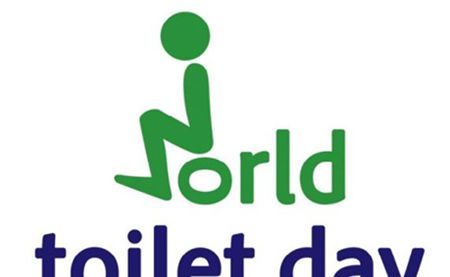潘基文2013年世界厕所日致辞
爱思英语编者按:第67届联合国大会2013年7月24日通过决议,将每年的11月19日设立为“世界厕所日”,以推动安全饮用水和基本卫生设施的建设,倡导人人享有清洁、舒适及卫生的环境。
Secretary-General’s Message on World Toilet Day
秘书长世界厕所日致辞
19 November 2013
2013年11月19日

Each year, more than 800,000 children under five die needlessly from diarrhoea – more than one child a minute. Countless others fall seriously ill, with many suffering long-term health and developmental consequences. Poor sanitation and hygiene are the primary cause. Worldwide, some 2.5 billion people lack the benefits of adequate sanitation. More than 1 billion people practice open defecation. We must break the taboos and make sanitation for all a global development priority.
每年,有80多万名五岁以下的儿童死于腹泻——每分钟就有一名,而这本不该发生。还有无数的儿童身染重病,其中许多还因此留下长期的健康和发育后遗症。卫生条件和个人卫生状况差是这一现象的首要原因。在全球范围内,约有25亿人无法享有充分的卫生条件。超过10亿人露天排便。我们必须打破禁忌,努力让人人享有卫生条件,使之成为发展领域的一项全球优先事项。
This first official observance by the United Nations of World Toilet Day is an opportunity to highlight this important topic. Sanitation is central to human and environmental health. It is essential for sustainable development, dignity and opportunity. Poor water and sanitation cost developing countries around $260 billion a year–1.5 per cent of their gross domestic product. On the other hand, every dollar invested can bring a five-fold return by keeping people healthy and productive. When schools offer decent toilets, 11 per cent more girls attend. When women have access to a private latrine, they are less vulnerable to assault.
今天,我们首次正式庆祝联合国世界厕所日。借此机会,可突显这一话题的重要意义。卫生条件是人类健康和环境健康的核心所在。就可持续发展、尊严和机会而言,卫生条件也不可或缺。劣质的水和卫生条件让发展中国家每年蒙受约2600亿美元的损失——相当于其国内生产总值的1.5%。而另一方面,在卫生条件方面每投入一美元,则可使人保持健康和生产能力,因而带来五倍的回报。学校若有像样的厕所,女生入学率会提高11%。妇女若能找到有隔间的厕所,她们遭受侵犯的风险就会降低。
Despite the compelling moral and economic case for action on sanitation, progress has been too little and too slow. That is why I launched a Call to Action on Sanitation this year to end open defecation by 2025 and build on existing efforts such as Sanitation and Water for All and the Sanitation Drive to 2015, the target date for achieving the Millennium Development Goals.
尽管在卫生条件方面采取行动的道德和经济理由非常充分,但迄今进展太小太慢。正因如此,我今年发起了一项卫生行动呼吁,旨在到2025年消除露天排便的现象,并继续发挥现有有关工作,如“人人享有环境卫生和饮用水”及“2015年以后环境卫生运动”的价值,而2015年也正是实现“千年发展目标”的期限。
We are a long way from achieving the MDG target of reducing by half the proportion of people lacking adequate sanitation. We must urgently step up our efforts, with all actors working together for rapid, tangible results. And as we look beyond 2015, it is essential that sanitation is placed at the heart of the post-2015 development framework. The solutions need not be expensive or technology-driven. There are many successful models that can be replicated and scaled up. We must also work to educate at-risk communities and change cultural perceptions and long-standing practices that have no place in our modern world.
要实现把缺乏充分卫生条件的人口比例减半的千年发展目标,我们仍任重道远。我们必须紧急加大工作力度,与所有行为体携手合作,以实现快速和切实的成效。展望2015年以后,必须把卫生条件置于2015年后发展框架的核心位置。有关解决方案不必耗资巨大,也不是非有高技术不可。其实,有许多成功的模式可供复制和推广。我们也必须对高风险社区进行宣传教育,努力改变与我们现代世界格格不入的一些文化观念和由来已久的风俗习惯。
By working together – and by having an open and frank discussion on the importance of toilets and sanitation – we can improve the health and well-being of one-third of the human family. That is the goal of World Toilet Day.
只要我们共同努力——并就厕所和卫生条件的重要性进行公开和坦诚的讨论——我们就能改善人类大家庭三分之一成员的健康和福祉。这正是世界厕所日的目标。